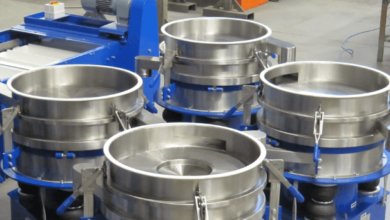Major Differences between Direct Tax and Indirect Tax in 2024

One of the most attractive features of the United Arab Emirates is the absence of federal income tax. The overall tax system in the UAE is pretty simple. However, there are some crucial details you might need to be aware of whether you are an individual or an entrepreneur with an established business. One of them is the basic difference between direct and indirect taxes in the UAE.
Every eligible entity is liable to pay the taxes they are applicable to as per the UAE tax laws. Hence, it is vital to know their importance and differences. This guide will take you through everything you need to know about direct and indirect taxes in the UAE.
Tax system in the UAE
Taxes are basically a type of charge imposed on taxpayers by a governmental organization for funding governmental and various expenses. The tax system in the UAE is indeed one of the major draws for many expats to the country. The UAE residents and citizens are exempted from paying any income tax.
In January 2018, the UAE introduced VAT (Value Added Tax) at a rate of 5% on general goods and services. The government also levied an excise tax on specific products that are deemed harmful to human health or the environment. Further in June 2023, a corporate tax was introduced to be imposed on business profits for the tax year, depending on how the business is set up.
Additionally, all the tourists, residents, and citizens in the UAE are liable to pay some form of tax, depending on their immigration status.
Direct Tax
Direct Taxes are directly paid to the authority that imposes the tax. For example, income tax, corporate tax, property tax, etc. These types of taxes are generally progressive and tend to increase according to the increase in the taxable amount.
Common direct taxes levied in the UAE:-
- Corporate tax
- Wealth tax
- Transfer tax
Advantages of Direct Taxes –
- No unfair situation – Direct taxes depend on the payer’s ability and income. People with higher incomes are made to pay higher taxes than those with low incomes.
- Changes as per government needs – Since direct taxes are paid directly to the government, they can fluctuate the tax rate to balance the country’s economic condition.
- Development of the country – Direct taxes can contribute to the development of the country by making the rich pay for the betterment of the poor’s lives. The taxes received by the government are usually spent on the development activities of the nation.
Indirect Tax
Indirect taxes are levied on consuming goods and services. Since they aren’t charged directly on income or profits, an intermediary (retailer) collects these taxes from the person consuming or purchasing the goods and services (consumer). Unlike direct taxes, indirect taxes are regressive, which means low–income earners have to pay a larger percentage of taxes compared to high-income earners.
Common indirect taxes levied in the UAE
- Value Added Tax (VAT)
- Excise Tax
- Sales tax
- Customs tax
Advantages of Indirect Taxes –
- Contribution by every individual – Unlike direct taxes, every individual is bound to pay a minimum amount of the indirect tax. The tax rates vary depending on the product. Hence, every individual will contribute to pay for these taxes.
- Product control – Adding an extra amount to the total price of the product will restrict the customers from buying in bulk, thereby controlling the product purchase. Consequently, the unavailability of the product will also be minimized.
- Hidden tax – Since the taxpayers are not familiar that they are paying the tax, any tax rate variation will not exasperate them.
The key difference between direct and indirect taxes
Direct and indirect taxes are basically distinguished based on the way they are imposed and the end user who ultimately bears the burden. Here’s an easy way to understand the variances –
Nature of the tax
Direct taxes are imposed on the income or profits of individuals and businesses. Nevertheless, in the UAE, direct taxes are limited and primarily levied on oil companies and foreign banks.
On the other hand, indirect taxes are charges on goods and services meant for consumption. These taxes affect a broad range of products and services.
Tax burden
The burden of direct taxes is on the taxpayer, who files and pays the taxes, whereas the burden for indirect taxes is on the end consumer, where businesses collect the tax money from the consumers on behalf of the government and forward it.
Tax rates and application
Direct taxes like corporate taxes are not widespread in the UAE. However, they can be significant for some sectors such as oil companies (55%). On the contrary, indirect taxes like VAT (5%) and excise tax affect everyday consumption, thereby impacting a larger portion of the economy.
Impact
Direct taxes have a great influence on business decisions. Therefore, companies need to frame tax planning strategies in order to minimize their tax liabilities. However, indirect taxes affect consumer prices and purchasing behavior. Therefore, companies need to stay compliant with VAT and excise tax regulations through meticulous accounting and reporting.
Compliance and administration
Businesses in the UAE are required to stay compliant with tax regulations in order to avoid penalties and ensure smooth operations. Sectors, especially those subject to corporate tax, need to maintain accurate records, file tax returns, and make timely payments. The administration of corporate tax is overseen by the Federal Tax Authority (FTA), who ensures compliance and addresses any tax disputes or issues.
Similarly, businesses that are subject to VAT and excise taxes must also register with the FTA, file returns regularly, maintain accurate records of their transactions, charge the correct tax rates, issue valid tax invoices, and remit the collected taxes to the government.
The tax consultants of Shuraa Tax can provide guidance and support to navigate these requirements effectively.
Future of Taxation in the UAE
The tax landscape of the UAE is constantly evolving to correspond with international standards, thus meeting the needs of its growing economy. As the country is aiming to diversify its revenue sources, it is anticipated that further changes will be brought into tax policies and regulations. Staying current with these changes would help residents, businesses, and investors navigate the intricacies of the UAE’s tax framework.
Conclusion
Thus, understanding the difference between direct and indirect taxes in the UAE is important for effective financial management and compliance. Although the country has a favorable tax regime with no income tax for individuals, certain business sectors need to conform to the corporate tax regulations. On the other hand, indirect taxes have a great influence on consumer behavior and business operations.
By understanding these variations and staying updated with the tax policies, one can make informed decisions and enhance their financial strategies. At the same time, the UAE also strives to maintain a competitive tax environment, thus ensuring sustainable revenue generation for residents and investors alike.
Tax consultants at Shuraa can help you with relevant information on the types of direct and indirect taxes imposed in the UAE. They are one of the leading firms with highly experienced tax experts serving clients from various countries across the world. Their specialists will assist you with the best tax compliance and ensure that you and your business are compliant with the laws and regulations of the country.
For queries regarding direct and indirect taxes, contact info@shuraa.com







